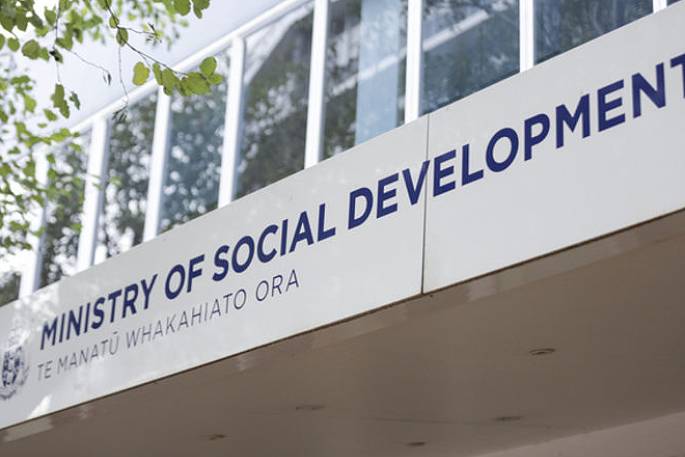The Government says it plans to reduce benefit dependency and rebuild the economy, following an increase in the number of people receiving the Job Seeker Support benefit.
Bay of Plenty MP Tom Rutherford and Coromandel MP Scott Simpson claim that New Zealand’s latest benefit statistics show that the Government’s plan is vital for the Bay of Plenty and Coromandel.
But Labour spokesperson Jan Tinetti believes these claims are untrue.
In a statement to SunLive, the Ministry of Social Development says Jobseeker Support is for people who are actively looking for or preparing for work.
It includes people with part-time work obligations and those who cannot look for work at the moment (e.g. those with a health condition, injury, or disability).
At the end of March 2024, 187,986 people were receiving Jobseeker Support, according to the Ministry of Social Development ‘Benefit Fact Sheets Snapshot March 2024 Quarter’.
“This was up 19,488 or 11.6 per cent when compared to March 2023.
“The proportion of the working-age population receiving this benefit increased to 5.9 per cent, up 0.5 percentage points from March 2023.”
“At the end of March 2024, 108,294 people were receiving Jobseeker Support – Work Ready.
“This was up 11,409 or 11.8 per cent when compared to March 2023.
“At the end of March 2024, 79,692 people were receiving Jobseeker Support – Health Condition or Disability.
“This was up 8076 or 11.3 per cent when compared to March 2023.”
Latest benefit stats show a plan is vital for BOP - Rutherford
New Jobseeker Support Benefit figures for the Bay of Plenty region underscore the importance of the Government’s plan to reduce benefit dependency and rebuild the economy, says National MP for Bay of Plenty Tom Rutherford.
 Bay of Plenty MP Tom Rutherford. File Photo.
Bay of Plenty MP Tom Rutherford. File Photo.
“Jobseeker Support Benefit numbers are significantly higher than when National was last in government and we think that’s unacceptable.
“These new stats show our plan to rebuild the economy and get Kiwis off welfare and into work is the right one.”
Rutherford says the Bay of Plenty region had 11,785 people receiving Jobseeker Support in March 2017, the recent figures released show in March 2024 that number has risen to 18,456.
“We know that work-ready job seekers are forecast to spend an average of 13 years on a benefit, and teenagers could become trapped on welfare for 24 years of their working lives.
“We have set a target of 50,000 fewer people on Jobseeker Support by 2030.”
Rutherford says there are a suite of measures in place to achieve this including mandatory reapplication for Jobseeker benefits every six months, new non-financial sanctions, and a traffic light system to help job seekers comply with their work obligations.
Reducing benefit dependency
The latest Jobseeker Support Benefit figures underscore the importance of the Government’s plan to reduce benefit dependency and rebuild the economy, says National MP for Coromandel Scott Simpson.
 Coromandel MP Scott Simpson. File Photo.
Coromandel MP Scott Simpson. File Photo.
“While the numbers do not specify the Coromandel electorate, many of our communities are included in the statistics for the Bay of Plenty region.
“It is sobering to read that work-ready job seekers are forecast to spend an average of 13 years on a benefit, and teenagers could become trapped on welfare for 24 years of their working lives.
“That is unacceptable and we are taking action to put a stop to the spike in welfare dependency.”
Labour refutes National’s claims
“The Government’s claim that they will have a laser focus on getting people into work isn’t true,” says a member of Parliament, Labour spokesperson Jan Tinetti.
 Labour spokesperson Jan Tinetti. File Photo.
Labour spokesperson Jan Tinetti. File Photo.
“It will be a laser focus on making it more difficult for people to access benefits in the first place and getting people off the books as soon as possible with no regard for where they go.
“As more Kiwis find themselves out of work, New Zealanders should be worried about the welfare safety net and whether they are going to be given quick access to it if they themselves in a position of needing it.
“The Minister has admitted that the target to reduce beneficiaries by 50,000 is not purely about achieving work outcomes.
“Success for the Government in achieving these numbers will include people cancelling benefits because they are put in prison, move overseas, change relationship status, become eligible for superannuation or die.
“I am also concerned for the nearly 80,000 Job Seekers who are on the Health Condition/ Disabilities benefit and the additional pressure that the Government’s target will have on this already vulnerable group.”



2 comments
Work is a four-letter word.
Posted on 01-05-2024 12:25 | By morepork
Over years, we have changed the Victorian work ethic, inherited from our forefathers and replaced it with a Nanny State. The idea of being unemployed for a long period was socially unacceptable and people did whatever was available to make ends meet. When my father was incapacitated through a heart attack, my mother never hesitated to find some way to put food on the table. She took in washing, and ironing, folded newspapers, cleaned other people's houses, and minded children. My father ensured the garden produced vegetables, and we had chickens and traded eggs with the neighbours for food scraps to feed them. My point is about attitude. It's good that we have MSD and people who need help can get it, but there are always some who want to make it their living. The nanny State has become the default state of mind for far too many.
Hmmm
Posted on 01-05-2024 14:06 | By Let's get real
The usual Labour response.... Give them money.
I heard figures of around $1200 a week in benefits available for single mothers with children just recently. Whether those numbers are correct or not, if those numbers are out there it gives a completely different spin to our "welfare" system.
I haven't got to retirement yet, and I'm not particularly looking forward to trying to survive on around $400 a week...
No food on the table is a great incentive to get a job.
We currently have to import workers from overseas and pay them nearly $30 an hour to pick fruit or drive buses. So let's see the unemployment lines grow and the overseas workers going back to their families, because there's absolutely no shortage of work for those that are willing to explore their options and retrain.
Leave a Comment
You must be logged in to make a comment.